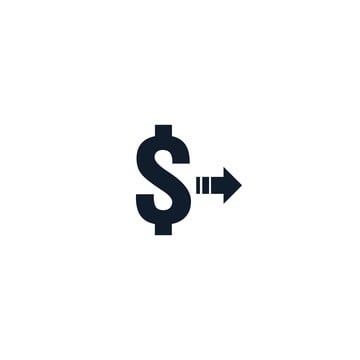
Creditors earn by charging interest on the loans they offer their guests, and a company charges this loan to its income statement, which reduces net profit. In turn, the creditor bears a degree of risk that the borrower may not repay the loan. A business that provides inventories or services and doesn’t demand immediate payment is also a creditor, as the customer owes the business plutocrat for services formerly rendered. For example, if A borrowed money from B and he is entitled to pay it back to B after a specific duration, then in this condition, A will be the debtor, and B will be a creditor. In the case of Businesses when the credit sale incurs the customer shall become the debtor.
They come under the asset category in the balance sheet of the company. Also, the discount can be allowed to debtors by the person who extends the credit. A creditor is someone who lends money to another person or business. When somebody borrows money, they promise to pay it back with interest.
What are Bad Debts?
In addition to the principal amount borrowed, debtors may also be required to pay interest on their principal balance. Creditors are a liability because they can be considered as having a negative effect on the company’s net worth. They would be considered an asset if they brought in more money than it cost them to produce and distribute their products.
The practice ensures that a company receives payments from its debtors and sends payments to its creditors on time. Thus, the company’s liquidity does not deteriorate while the default probability does not increase. Ans.Accounting requires the preparation of the 3 most important financial statements. They are – The Balance sheet, which is a summary of the financial position of a company including the assets, liabilities and capital. To keep track of the time between arriving and exiting payments, a corporation must properly manage its debtors and creditors.
In this article, we are going to study Creditors and debtors. Here we are also going to differentiate between Creditors and debtors. At last, we are going to discuss some important questions related to this topic. If you need advice or services on any aspect of bookkeeping, accounting, and tax, our specialists are ready to help.
Who Are the Debtors and Creditors of a Bank?
If they don’t, then this would be considered a debt for which they can require payment. When somebody owes you an amount, it’s basically just a promise to pay the amount back with interest. With debtors, they are considered your asset because you can collect this money whenever you want. The term creditor could be used for short-term loans, long-term bonds, and mortgage loans.
- If these payments aren’t made, creditors will hire or employ collectors to get the money.
- Some examples of external users are
government, tax authorities, labour unions, etc. - If the accounting information is not clearly presented, then the qualitative characteristics like, comparability, reliability and understandability, are violated.
- Persons or organisations to whom the firm is liable to pay money are called creditors.
- The relationship between a debtor and a creditor is critical to the extension of credit between parties, as well as the accompanying transfer of assets and liability settlement.
Both debtor and creditor jobs require high levels of integrity and diligence. For debtors, they are obligated to pay the debt back with interest to the collection agency or business entity. For creditors, they expect their principal plus interest amount from the debtor when their loan has been paid off.
NCERT Solutions for Class 11 Commerce Accountancy Chapter 1 – Introduction To Accounting
They will not lend any money to somebody if they don’t think that it’s certain they will be paid back. Typically, the debtors are individuals or businesses looking for capital. In sum, the creditor vs debtor is different, creditors are those who lend money and debtors are those who owns money. To ensure the smooth flow of the working capital cycle, a company must keep a track of the time lag between the receipt of payment from the debtors and the payment of money to the creditors. A debtor is a person or enterprise that owes money to another party.

It refers to a statement that indicates the liability a borrower will repay their loan. In the earlier era, credit also pertained to worthiness or character or responsibility. The term creditor is constantly used in the financial world for reference to short-term and long term loans, bonds, and mortgage loans. If there is no possibility to meet the financial obligations, a debtor may file for bankruptcy to seek protection from the creditors and relief of some or all debts. Generally, a debtor can initiate the bankruptcy process through a court.
Extending Credit:
The key difference between a debtor vs. creditor is that both concepts denote two counterparties in a lending arrangement. The distinction also results in a difference in financial reporting. On the company’s balance distinguish between debtors and creditors class 11 sheet, the company’s debtors are recorded as assets while the company’s creditors are recorded as liabilities. Depending on whether the creditor is an individual or a reality, a type of collateral might be needed.
Let’s say again that you own a retail store and one of your customers hasn’t fulfilled their payment obligation. Your debtor is now delinquent and will be assigned a collector (if they don’t already have one). The collector will monitor when this customer makes payments and follow up if they don’t.
The Impact of Debtors and Creditors on Cash Flow
This collateral could come in the form of a property or jewellery, papers and assets of the company. The Bank could also place restrictions on the means of the company, which means that Company A would not be suitable to sell any means before they pay the quantum owed to the Bank. This type of legal action provides security to the creditor in the event the debtor is unfit to pay.
The creditor lends money, extends credit, or provides goods or services with the expectation of being repaid by the debtor. The debtor-creditor relationship forms the foundation of financial transactions, with creditors expecting timely payments from debtors. A lender or a creditor could be an Individual, association, company, or government that has provided a loan or credit to an entity and has claims on them. The first party has handed some money or goods and services to the alternate party under the supposition that the alternate party will return the original payment and service. Creditors are categorised as current and non-current or long-term creditors. Non-current creditors are repaid after a period of one year and are recorded under long term arrears in the balance sheet.
Reducing Balance Method for Calculating Depreciation
For a business, the amount to be paid may arise due to repayment of a loan, goods purchased on credit, etc. Creditors are the parties, to whom the company owes a debt. Here, the party can be an individual or a company which includes suppliers, lenders, government, service providers, etc. Whenever the company purchases goods from another company or services are provided by a person and the amount is not yet paid.
Opinions expressed here are author’s alone, not those of any bank, credit card issuer or other company, and have not been reviewed, approved or otherwise endorsed by any of these entities. All information, including rates and fees, are accurate as of the date of publication and are updated as provided by our partners. Some of the offers on this page may not be available through our website. In either case, take your time to review the terms of the credit relationship to determine if it’s the right money move for you.
